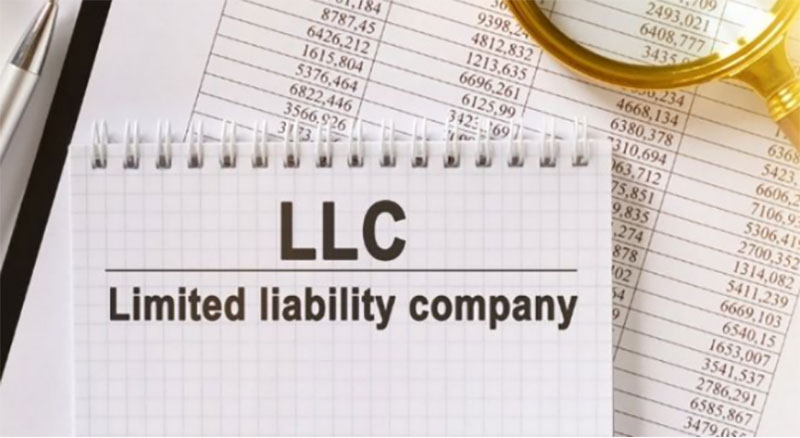Tax Advantages of an LLC
Jun 04, 2023 By Triston Martin
Limited liability companies (LLCs) are among the most common commercial entities. A limited liability company (LLC) has significant tax advantages over other business entities. Compared to other common business structures, such as sole proprietorships and partnerships, limited liability companies (LLCs) provide owners with many more options for minimising their federal income tax liability. Proper tax planning is essential for the owner of a small business or the entrepreneur starting one from scratch. A financial advisor can walk you through the steps and assist you in choosing the best business structure.
Main Tax Benefit of an LLC

The term "pass-through" best describes the tax treatment of a limited liability company. This is how an LLC can distribute its profits to its members without first subjecting those profits to corporation federal income taxes. Pass-through entities include sole proprietorships and partnerships, which must pay taxes. The federal government receives no revenue from these corporations. Instead, their profits go straight to their owners, who then have to pay taxes on them according to their income brackets.
This is in contrast to the double taxation faced by regular C corporations. To be more precise, corporate income is subject to taxation. Then, the owners must pay personal income taxes on the amount distributed to them. Avoiding double taxation can result in substantial savings. One of the primary tax advantages of forming an LLC is this.
Other Benefits
When selecting how to tax your limited liability company, you should consider the following LLC pros.
1. Profit-Sharing Taxation
The opportunity to avoid double taxation is a major financial benefit of forming an LLC. In the eyes of the IRS, limited liability companies are "pass-through entities." Owners of Limited Liability Corporations are not required to file federal income taxes. Instead, proprietors can report their share of the company's profit or loss on their personal tax returns.
This is known as "pass-through taxation," and it helps ensure that your business does not incur double taxation at the corporate and individual levels.
2. Optional Taxation
The freedom to choose one's method of taxation is one of the most obvious benefits of forming an LLC. Your limited liability company can elect to be taxed as an individual, a partnership, a C corporation, or a S corporation. If you choose to have your LLC taxed as a sole proprietorship or a S corporation, the profits from the business will be added to your personal income.
Your LLC earnings will be subject to taxation at both the individual and corporate levels if you elect to be taxed as a corporation, but the first $75,000 of your earnings will be subject to the reduced corporate tax rate. Depending on your needs and how much you want to put back into the firm, both strategies have their merits.
3. Deducting Business Expenses
Growing a startup is expensive because of the many costs involved. Fortunately, many of these costs qualify for tax deductions under IRS rules.
No of how an LLC is structured, its owner can take a tax deduction for business beginning costs under federal law. LLC owners can write off startup costs because they occur during the company's infancy. Advertising, employee training, travel costs, and anything else necessary to get your firm up and running before you make your first sale fall under this category.
Once your company is up and running, you can continue to deduct operating expenses like cell phone bills, internet service, business lunches, accounting fees, and rent for an office.
4. Double Taxation
Income earned by a corporation is taxed twice, once by the corporation and again by its shareholders. Companies are required to pay corporate taxes as well. Unless you set up your LLC as a company for tax reasons, it will be possible to avoid paying taxes twice on the same income.
LLC Tax Restrictions

Remember that forming an LLC does not absolve you from paying taxes. Any profits the limited liability company earns will still be subject to your income tax. Depending on the circumstances, an LLC may not be required to pay company taxes immediately.
Income earned through an LLC is not subject to withholding in the same way that salaries are. As a result, you'll have to submit estimated federal income tax payments every three months. Some state governments may also intervene by directly taxing LLC earnings. However, many require LLCs to pay a fee.
The cost of forming an LLC and other capital expenditures, such as purchasing materials and equipment required in the firm's operation, may be tax deductible. In particular, unlike with a C corporation, you might be unable to write off expenses like health and life insurance. You can owe taxes on these perks if your LLC gives them to you.

Dec 02, 2023 Susan Kelly

Jan 22, 2024 Susan Kelly

Nov 22, 2023 Susan Kelly

Dec 10, 2023 Triston Martin

Feb 01, 2023 Susan Kelly

Nov 18, 2023 Triston Martin